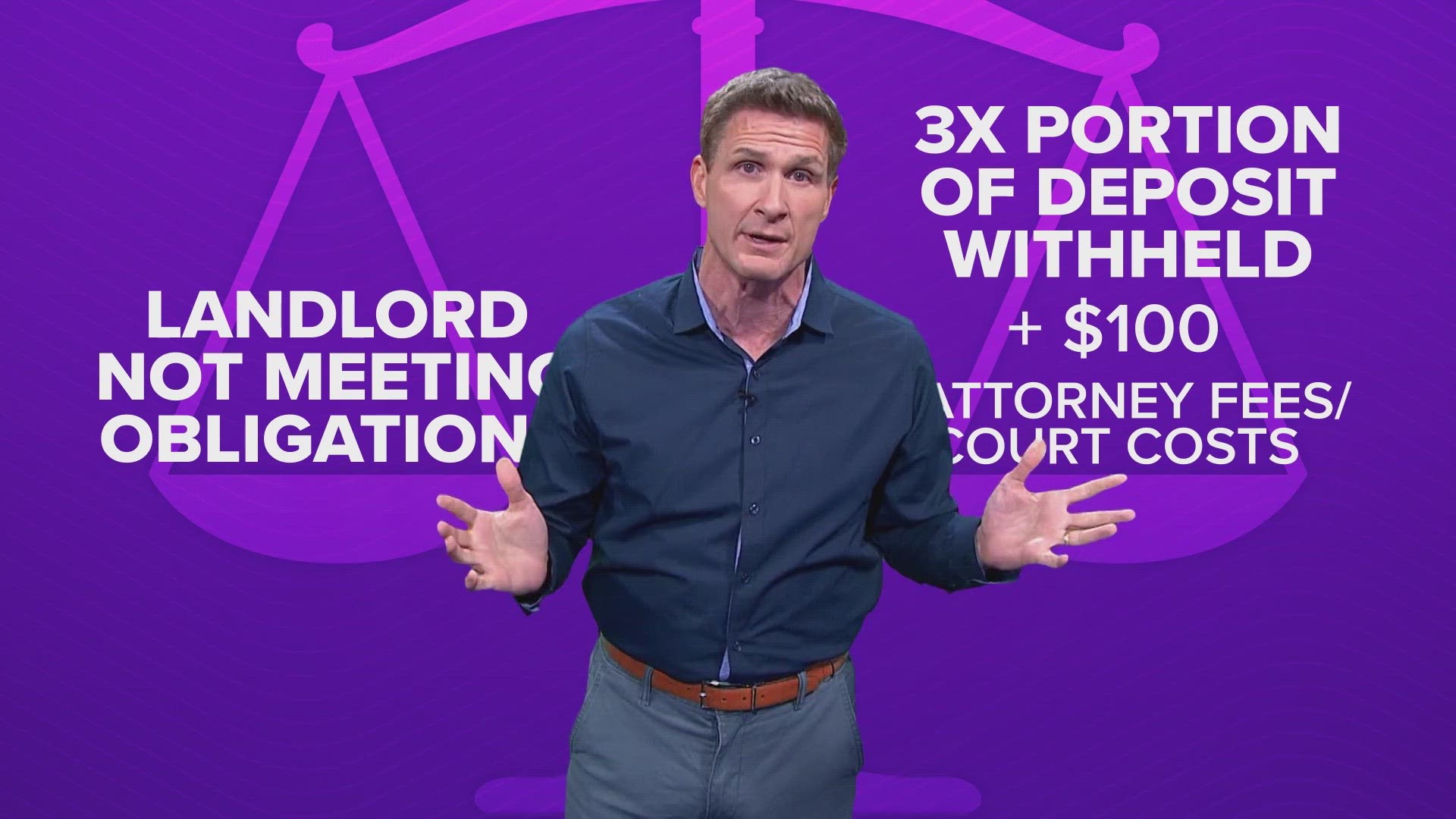DALLAS — We often talk about issues related to homes. So often, though, it is about home ownership and buying and selling.
But, we should not forget that many Texans are renters. Figures have shown that as many as 38% of people in this state reside in rented households.
When I was getting my real estate license, I made notes of some important things homeowners (and renters) should know.
So, episode six of my “Home Schooling” series is for the renters.
We will refer to the Texas Tenants’ Rights Handbook for the following information. It has a lot more that we don’t get into here as well.
Lockouts
If you fail to pay the rent, the handbook points out that a landlord can change your locks -- but only if the lease says they can. And even then they must mail or deliver a three-day notice to you that lists the earliest date of a potential lockout, as well as the amount of rent you owe and where you can pay it.
Also, they must inform you of your right to receive a key to the new lock at any hour regardless of whether you pay the delinquent rent.
If things escalate and you do get locked out, the landlord has to leave a written notice on your door explaining the delinquent charges and that whether you pay or not, they must tell you how to contact someone 24/7 to get a key to the new lock, which they have to get to you within two hours. If they change the locks and don’t do these things, the handbook explains that you have the right to recover possession of the premises or terminate the lease.
The guide also says you can "Recover actual damages, one month’s rent plus $1,000, plus reasonable attorney’s fees and court costs, less any past due rent owed by you as the tenant."
If your landlord will not provide you a key to the new lock, the guide also says you can go to your Justice of the Peace Court and ask for a “writ of re-entry”. More about this topic on pages 30-31 of the handbook.
Security deposits
Let’s move on -- like really move on. When you move out, you are due your security deposit back minus any deductions specified in the lease and deductions for physical damage you caused to the property. Normal wear and tear are not supposed to count against you.
You must give the landlord or property manager a forwarding address. You should do that in writing. Then, they have 30 days after you move out to put your deposit refund into the mail. That is also how long they have to send you a written description and itemized list of deductions if they keep any portion of your security deposit, unless you don’t dispute that you moved out still owing unpaid rent.
If the landlord does not meet these obligations, the Tenants’ Rights Handbook says you can sue for three times the amount of the portion of the deposit wrongfully withheld, plus another $100, and attorney’s fees and costs.
It adds that you can sue for your deposit, without an attorney, at a Justice of the Peace Court, where the handbook says you can be awarded up to $10,000 plus court costs. See pages 25-26 in the handbook for more information on this topic.
Eviction
Many tenants have even bigger issues. Just looking at the numbers from the Eviction Lab at Princeton University. From August 2022 through July 2023, there were 177,753 combined eviction notices filed in four major Texas cities: Dallas (40,293), Fort Worth (45,065), Austin (9,264) and Houston (83,131).
If you are a tenant and you fail to pay rent or you do not abide by the lease, the tenant handbook states that the landlord cannot just remove you from the property without an order from the Justice of the Peace.
First, the guidebook says the landlord has to deliver a notice to you to vacate. They must give you 72 hours to get out (unless there is a different time period stated in your lease). If you and the landlord cannot work something out and you don’t get out, the landlord can file a lawsuit to evict you.
The court will then mail you case paperwork, which includes information in English and Spanish that you may call the State Bar of Texas’ Lawyer Referral and Information Service for help with this.
After the trial, if the court orders eviction, you can appeal within five days. If you do not, the landlord can get a writ of possession and law enforcement can physically remove you.
Representation
As far as finding legal representation or representing yourself as a tenant in a legal dispute, the handbook offers these resources and gives this advice:
“To find the name of an attorney, contact your local tenant association, local bar association, or visit texasbar.com. You may also call the State Bar of Texas Lawyer Referral and Information Service at 1-800-252-9690, Monday through Friday from 8:30 a.m. to 4:30 p.m. CT. If you have a very low income, you may be eligible to receive free legal assistance from a legal services office, and if you decide to file a lawsuit, you may also be able to file a statement describing your financial status instead of having to pay court costs. If you need the name and telephone number of a legal services office in your area, you can call the Legal Access Division of the State Bar of Texas at 1-800-204-2222, ext. 1855. A referral directory of legal service providers is on the State Bar website, texasbar.com/referraldirectory. You may also choose to represent yourself in a Justice of the Peace Court. Justices of the Peace routinely decide lawsuits filed by parties who do not have lawyers. It is still a good idea to get tips from an attorney or your local tenant association on the best way to represent yourself.”

